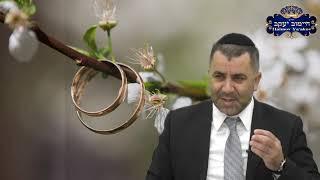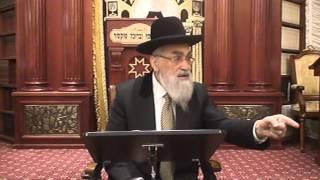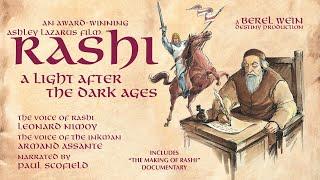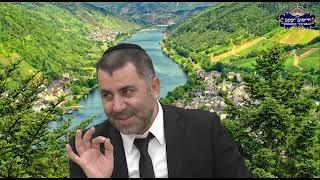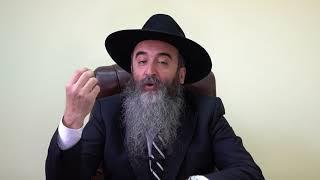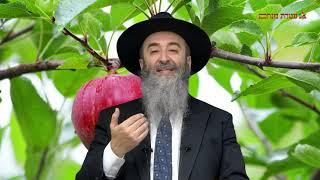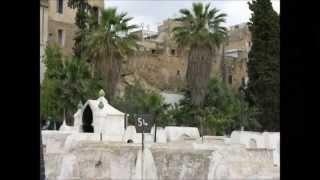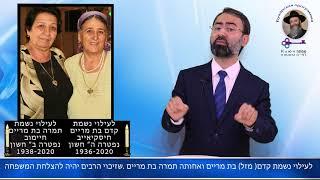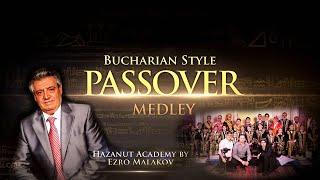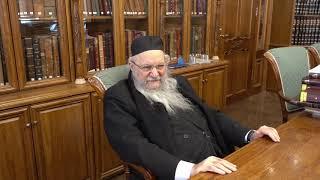Problems playing the video? Click Here to reload
Watch Videos: Random | New | Popular
All Essays | Report Video
|
Share Video
- Buy Us a Coffee -
Rabbi Jonathan Sacks
Yom Kippur is the Holy of Holies of Jewish time, the time when you can almost touch the Divine Presence, so intense is the atmosphere of the day.
And it begins at night with Kol Nidrei, the prayer whose haunting music has the power like no other to unlock the gates of the Jewish heart. And yet, did you ever look at the actual words themselves? Never was there a more unusual prayer. In fact, Kol Nidrei isn’t a prayer at all. It’s a formula for undoing vows, releasing us from obligations we didn’t really mean to undertake. It’s a legal document, one that wouldn’t be out of place in a lawyer’s office. Inspiring, it isn’t.
Never was there a greater disconnect, a deeper dissonance between the music and the words. The words are prosaic, the music sublime. So how did it happen? We can’t know for sure. The origins of Kol Nidrei are lost in the mists of time. But the most plausible suggestion about Kol Nidrei, or the words that precede it, giving permission for us to pray with abaryanim, transgressors, go back to the Middle Ages, to the times of forced conversion.
There were times under Christian, and sometimes even under Muslim rule, when Jews were faced with the choice: convert or die. Abandon your faith, accept ours, or we’ll be forced to kill you to save your soul. And some Jews did convert. They were known in Hebrew as the anusim, the people who acted under coercive pressure. Non-Jews called them conversos, or the insulting term marranos, meaning swine. It happened in Spain and Portugal in the 15th century, but it happened in Visigoth Spain as early as the 7th century.
Yet many of them remained Jews in secret. They kept what they could without risking their lives. And once a year, on the holiest of nights, they’d come to the synagogue, asked to be admitted, and they would pray a prayer, asking God to hold them innocent of vows they’d made under the threat of death.
It was a way of saying: Please, God, understand that we didn’t want to abandon you, we just wanted to live. You who know the heart, know this: The Jews we are, Jews we hold ourselves to be, and Jews we will remain. What an extraordinary story that is.
Some years ago, at a civic service, I was approached by a very aristocratic British politician. He said, I’m so glad you’re here. My wife wants to meet you. She’s Jewish, you know. Well, he introduced his wife to me and she told me her story.
Her family had been Christian for more than 500 years. They were conversos from Spain. Yet in all that time, they never forgot that they were Jews. And who knows whether one day her children or grandchildren may not find their way back to the synagogue and know more deeply than the rest of us the meaning of Kol Nidrei.
Which is why what’s happening today in the Jewish world is so sad. Today, there are no pressures forcing us to give up our faith. To the contrary. We are freer than Jews have ever been. Yet, throughout the Diaspora, one young Jew in two is deciding not to marry another Jew, create a Jewish home, have Jewish children and continue the Jewish story. What an irony. Jews survived poverty, but they’re failing to survive affluence. They survived oppression, but they’re failing to survive freedom. When they had almost nothing to thank God for, they thanked Him. But now, when we have almost everything to thank God for, we forget to thank Him.
This year, let’s so resolve to live that our children or grandchildren, the next generation of Jews, will want to stay Jewish, live Jewish lives, and continue the Jewish story. How do we do it? By living it ourselves with pride, with joy, with a sense of privilege that we are part of the most remarkable story of any people who have ever lived. The people who taught the world about the one God, Who created us in love, Who forgives us, cares for us, lifts us when we stumble, gives us hope when we stand on the edge of despair, Who believes in us more than we believe in ourselves. The God our ancestors never forgot, even when they were forced to pretend to be someone else.
Think of that as you listen this year to the music and the words of Kol Nidrei. And may God bless you in the coming year. Shana Tova.
in english
Yom Kippur is the Holy of Holies of Jewish time, the time when you can almost touch the Divine Presence, so intense is the atmosphere of the day.
And it begins at night with Kol Nidrei, the prayer whose haunting music has the power like no other to unlock the gates of the Jewish heart. And yet, did you ever look at the actual words themselves? Never was there a more unusual prayer. In fact, Kol Nidrei isn’t a prayer at all. It’s a formula for undoing vows, releasing us from obligations we didn’t really mean to undertake. It’s a legal document, one that wouldn’t be out of place in a lawyer’s office. Inspiring, it isn’t.
Never was there a greater disconnect, a deeper dissonance between the music and the words. The words are prosaic, the music sublime. So how did it happen? We can’t know for sure. The origins of Kol Nidrei are lost in the mists of time. But the most plausible suggestion about Kol Nidrei, or the words that precede it, giving permission for us to pray with abaryanim, transgressors, go back to the Middle Ages, to the times of forced conversion.
There were times under Christian, and sometimes even under Muslim rule, when Jews were faced with the choice: convert or die. Abandon your faith, accept ours, or we’ll be forced to kill you to save your soul. And some Jews did convert. They were known in Hebrew as the anusim, the people who acted under coercive pressure. Non-Jews called them conversos, or the insulting term marranos, meaning swine. It happened in Spain and Portugal in the 15th century, but it happened in Visigoth Spain as early as the 7th century.
Yet many of them remained Jews in secret. They kept what they could without risking their lives. And once a year, on the holiest of nights, they’d come to the synagogue, asked to be admitted, and they would pray a prayer, asking God to hold them innocent of vows they’d made under the threat of death.
It was a way of saying: Please, God, understand that we didn’t want to abandon you, we just wanted to live. You who know the heart, know this: The Jews we are, Jews we hold ourselves to be, and Jews we will remain. What an extraordinary story that is.
Some years ago, at a civic service, I was approached by a very aristocratic British politician. He said, I’m so glad you’re here. My wife wants to meet you. She’s Jewish, you know. Well, he introduced his wife to me and she told me her story.
Her family had been Christian for more than 500 years. They were conversos from Spain. Yet in all that time, they never forgot that they were Jews. And who knows whether one day her children or grandchildren may not find their way back to the synagogue and know more deeply than the rest of us the meaning of Kol Nidrei.
Which is why what’s happening today in the Jewish world is so sad. Today, there are no pressures forcing us to give up our faith. To the contrary. We are freer than Jews have ever been. Yet, throughout the Diaspora, one young Jew in two is deciding not to marry another Jew, create a Jewish home, have Jewish children and continue the Jewish story. What an irony. Jews survived poverty, but they’re failing to survive affluence. They survived oppression, but they’re failing to survive freedom. When they had almost nothing to thank God for, they thanked Him. But now, when we have almost everything to thank God for, we forget to thank Him.
This year, let’s so resolve to live that our children or grandchildren, the next generation of Jews, will want to stay Jewish, live Jewish lives, and continue the Jewish story. How do we do it? By living it ourselves with pride, with joy, with a sense of privilege that we are part of the most remarkable story of any people who have ever lived. The people who taught the world about the one God, Who created us in love, Who forgives us, cares for us, lifts us when we stumble, gives us hope when we stand on the edge of despair, Who believes in us more than we believe in ourselves. The God our ancestors never forgot, even when they were forced to pretend to be someone else.
Think of that as you listen this year to the music and the words of Kol Nidrei. And may God bless you in the coming year. Shana Tova.
in english
- Category
- Yom Kippur - Йом Кипур
- Tags
- Kol Nidrei, yom kippur
Commenting disabled.







